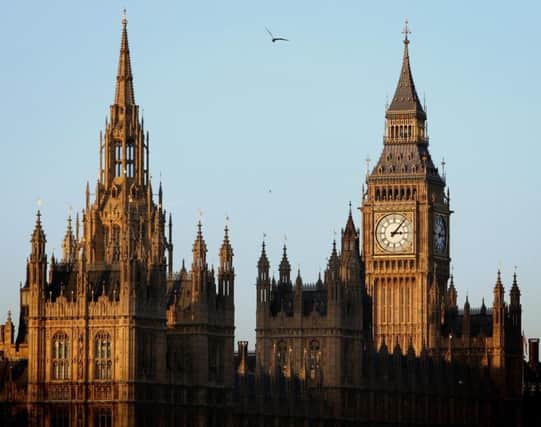MPs call for six month suspension of ‘draconian’ loan charge


In a debate which is due to take place tomorrow, members of the Loan Charge All Party Parliamentary Group (APPG) will also call for an independent inquiry into the loan charge, which is due to come into effect on Friday.
Opponents of the loan charge claim it undermines the rule of law because it is a retrospective charge - a claim denied by the Treasury.
Advertisement
Hide AdAdvertisement
Hide AdIn a tweet, the APPG said: “The motion is calling for a six month suspension of the draconian loan charge which comes in on Friday.”
The motion described the loan charge as “fundamentally unfair and undermines the principle of the rule of law”. A spokeman for HM Revenue & Customs has also confirmed that it has reported the suicide of somebody linked to loan charges to the Independent Office for Police Conduct.
A spokesman said: “We were informed that a customer had, very sadly, taken their own life. We had previously been told that the individual had used disguised remuneration schemes.”
The HMRC spokesman added: “When we are notified that an individual has taken their own life, and had contact with the customer at the time, or shortly beforehand, it is standard process is to refer the matter to the Independent Office for Police Conduct within 24 hours of the notification.”
Advertisement
Hide AdAdvertisement
Hide AdThe spokesman stressed that suicide is a complex issue and there is rarely a single cause and it was also important to emphasise that it will be for a coroner to determine any cause of death. The department will co-operate fully with any inquest. This is the first time that a suicide of someone linked to loan charges has been reported to the IOPC.
The loan charge is a charge on all payroll remuneration through loans made since 1999, in the form of a 45 per cent charge on all loan payments in that time.
The charge is levied as a back tax and will be demanded by HMRC in the 2019 to 2020 tax year. According to the APPG, this will mean that everyone who has been employed through such a structure will be hit with a retrospective charge in the 2018-19 tax year in one go, meaning “huge and wholly unaffordable bills”.
These schemes were designed to allow individuals to avoid paying income tax and National Insurance, according to the Treasury.
Advertisement
Hide AdAdvertisement
Hide Ad“The loan charge means people paying themselves through loans, often from offshore trusts, will now have to contribute their fair share to pay for our public services. HMRC has never approved these schemes and they have never worked,” a spokesman added.
“We have listened to the concerns of MPs, and have outlined settlement terms that give those earning less than £30,000 a minimum of seven years to repay.”
Where individuals are affected by the loan charge, HMRC will take full account of individuals’ ability to pay, the spokesman said.
Despite a written ministerial statement on employment-related tax avoidance arrangements in 2004 and legislation in 2011 specifically to tackle this form of avoidance, it was clear by the Budget of 2016 that these schemes continued to proliferate, the Treasury spokesman said.
Advertisement
Hide AdAdvertisement
Hide Ad“That is why the Government announced it would introduce a charge on the balance of any loans still outstanding at April 5 2019, in order to ensure that appropriate time was provided to clear up these arrangements.”
By the time of its introduction, individuals will have had three years since the Budget 2016 announcement to act to stop it applying, either by settling their liability with HMRC or repaying their loans, the spokesman added.